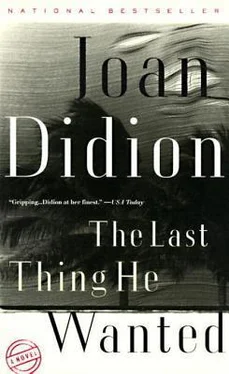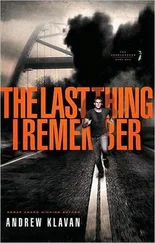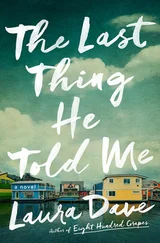Any situation in which something might happen to prevent her from telling Wynn what it was she wanted him to do.
Wynn had answered the phone.
Wynn had told her that he had just walked in off a flight from Taipei.
She had told Wynn what it was she wanted him to do.
She had not mentioned the kind of spooky coincidence at the embassy picnic.
My understanding is that Dick McMahon will not be a problem, she had heard the familiar but unplaceable voice say at the embassy picnic.
The steel band that was playing Sousa marches had momentarily fallen silent and the familiar but unplaceable voice had carried across the tent.
Deek McMaa-aan was the way the familiar voice pronounced the name. My understanding is that Deek McMaa-aan will not be a problem.
She had not placed the voice until she saw the Salvadoran across the tent.
Here is my concern, she remembered the Salvadoran saying in the Pan Am lounge at the Miami airport as he fingered the envelope Barry Sedlow had slipped him. We have a little problem here.
Transit passenger, she remembered Barry Sedlow saying in the car just after he shot out the streetlight with the 9mm Browning. Already on the six-thirty back to San Sal. Not our deal.
The Salvadoran was the kind of spooky coincidence.
The Salvadoran was why she called Wynn.
The Salvadoran was why she tried to call Catherine.
The Salvadoran was why she wrote the letters and took them to the air express office for next-day delivery to Catherine and to Wynn.
The Salvadoran was why she went from the air express office to a local office of the Bank of America, where she obtained eleven thousand dollars in cash, the sum of the cash available on Elena McMahon’s various credit cards.
The Salvadoran was why she then destroyed the cards.
My understanding is that Dick McMahon will not be a problem.
Not our deal, Barry Sedlow had said, but it was.
She wrote the letters and she arranged for Wynn to take care of Catherine and she got the eleven thousand dollars in cash and she destroyed the credit cards because she had no way of knowing what kind of problem Dick McMahon’s daughter might be seen to be.
Half a generation after the fact, from where I sit at my desk in an apartment on the upper east side of Manhattan, it would be easy to conclude that Elena’s actions that afternoon did not entirely make sense, easy to assume that at some point in the hour between learning her father was dead and seeing the Salvadoran she had cracked, panicked, gone feral, a trapped animal trying to hide her young and stay alert in the wild, awake in the ether, alive on the ground.
All I can tell you is what she did.
All I can tell you is that at that time in that place there was a logic to what she did.
Wynn, the second of the two letters she wrote that afternoon read.
What I couldn’t tell you on the phone was that something bad is happening. I don’t know what it is. So please please do this one thing for me.
P.S., the postscript read.
You have to pick her up yourself. I mean don’t send Rudich.
Rudich was someone who had worked for Wynn’s father and now worked for Wynn. Rudich was who did things for Wynn. Rudich had a first name but no one ever used it and she had forgotten it. Rudich was who Wynn would call if he needed somebody to fly to Wyoming to take a ranch out of escrow. Rudich was who Wynn would send if he needed somebody to deliver a contract in person the next morning in Tokyo. Rudich was probably who now called the caterer to lay on the tennis lunches.
Rudich could do anything but Rudich could not do this one thing she needed done.
Please please do this.
Love. Still. E.
The last time I was in Los Angeles I made a point of going to see Wynn Janklow.
“Why not come by the house Sunday,” he had said on the telephone. “I’m having some people, we’ll talk, bring a racket.”
I made an excuse to go instead to his office in Century City.
I admired, at his prompting, the photographs taken a few months before at Catherine’s wedding.
“Big blowout,” he said. “Under the huppah on the beach at sunset, I flew Bobby Short out to play during dinner, then two bands and fireworks, I’m still finding champagne glasses in the shrubbery but what the hell, great kids, both of them.”
I appreciated, again at his prompting, the view of Catalina from his office windows, the clarity of the atmosphere in spite of what he referred to as “all this enviro-freak sky-is-falling shit which as God is my witness I hear even from people I call my friends.”
I waited until the secretary had brought in the requisite silver tray with the requisite folded linen napkin, the requisite two bottles of Evian, the requisite Baccarat tumblers.
Only when the secretary had left the room and closed the door did I ask Wynn Janklow to try to remember what he had thought when he received first the call and one day later this letter from Elena.
He had furrowed his brow for my benefit. “That would have been, let me think, when.”
Nineteen eighty-four, I said. July 1984.
Wynn Janklow swiveled his chair and gazed out the window, squinting, as if 1984 might materialize just off Catalina.
No big deal, he said then. As he remembered he had to be in New York that week anyway, he flew into Logan instead, got a car to take him down to Newport, he and Catherine had been in New York by midnight.
Big killer heat wave, he remembered.
You know the kind.
The kind where you step out of the car onto the street and you sink into the asphalt and if you don’t move fast you’re methane.
He remembered he had Catherine call Elena that night, report she was scarfing Maine lobster in the Hollywood Suite at the Regency.
Great kid even then. Always a great kid.
True enough, on the money, now that I mentioned it there had been some trick about calling Elena, the hotel didn’t have her registered right, you had to ask for somebody else, she had given him the name when she called and he had given the name to Catherine.
Elise Meyer, I said.
Elise Meyer, he repeated. No problem, he was glad to be able to do what Elena wanted.
He had been here and Elena had been there but no problem, they stayed on good terms, they had this great kid after all, plus they were adults, unlike some people who got separated or divorced or whatever he and Elena had always maintained a very civilized kind of relationship.
True enough, again on the money, her call had seemed maybe a little overwrought.
Fourth of July, he was just off the plane from Taipei, thinking he’d play a little tennis, work off the jet lag before he had to be in New York.
And then this call from Elena.
Whoa, hold on, he remembered saying. So something happened at the embassy, some clerk gave you the runaround, let me make a few calls, shoot a rocket up the fucker’s fat ass.
You don’t understand, he remembered Elena saying.
You have to be here to understand, he remembered Elena saying.
Wynn Janklow had again gazed out the window. “End of sad story,” he said.
There had been a silence.
“The sad story is what,” I said finally. “You think Elena might have been right? Is that the sad story?” I tried for a neutral tone, a therapist guiding the client back. I wanted to see him confront that hour during which Elena had gone feral. “You think maybe you did have to be there to understand?”
He did not at first respond.
“Maybe you noticed this gadget I have on the wall there,” he said then.
He got up and walked to an electronic Mercator projection mounted on the wall, one of those devices on which it is possible to read the time anywhere in the world by watching part of the map pass into darkness as another part emerges into daylight.
Читать дальше












